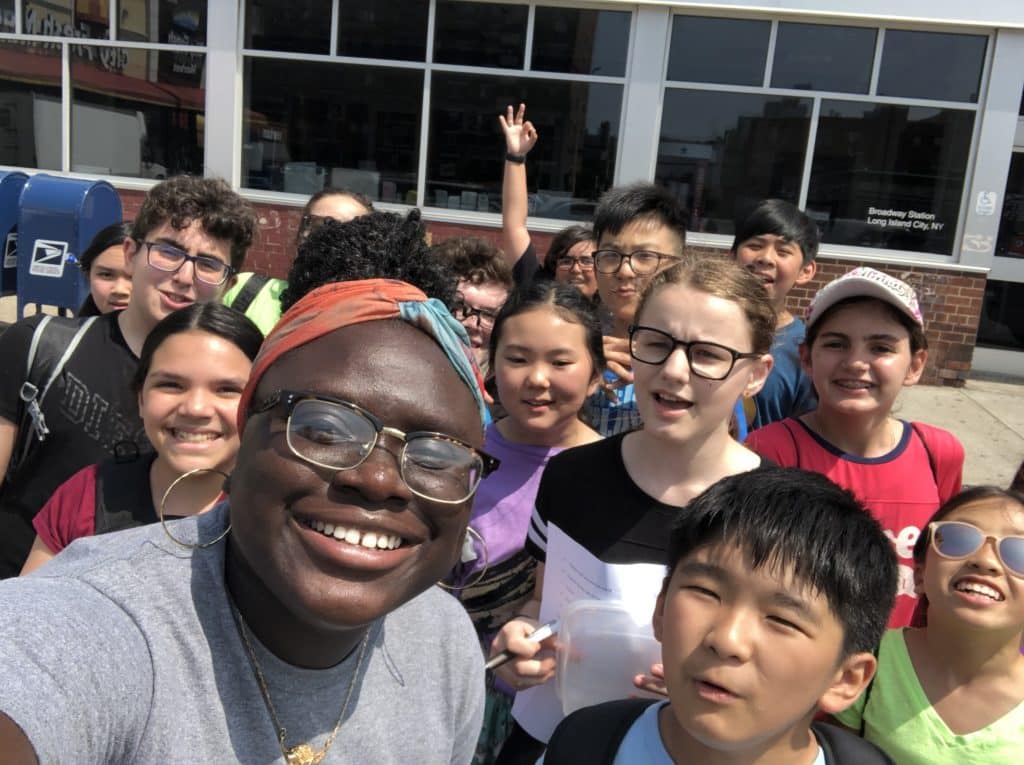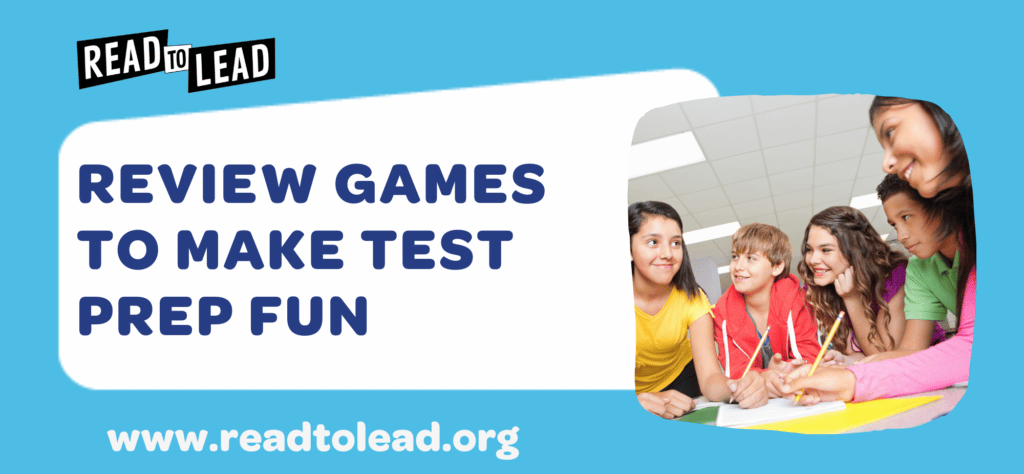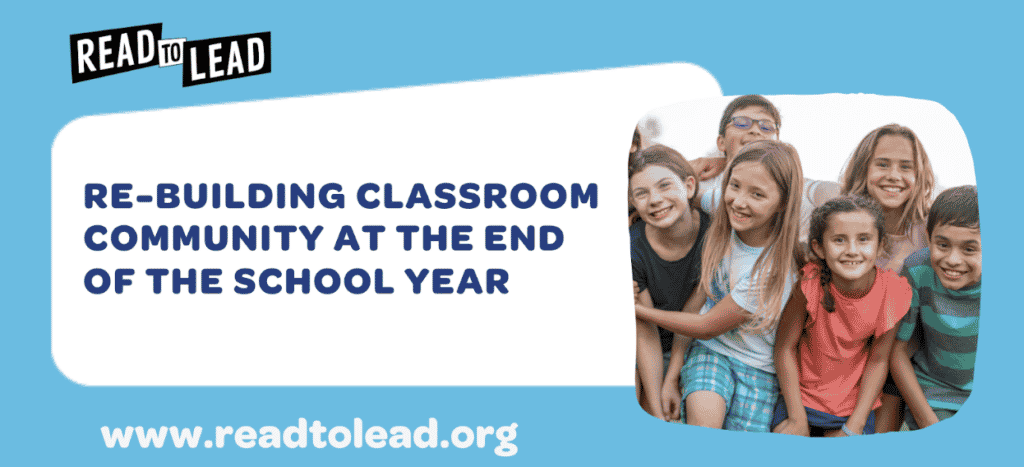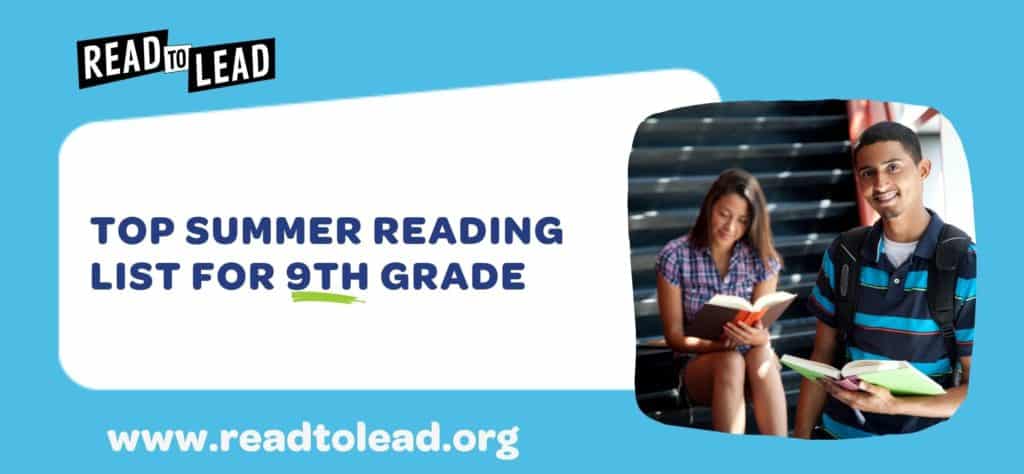New York-based educator Niame Traore was once skeptical about incorporating academic components during the summer. However, thanks to programs like Read to Lead (RTL), Ms. Traore is now convinced students can and should be learning any time of the year; it just depends on how the material is presented.
This summer, Ms. Traore worked with Global Kids, Inc. at The 30th Avenue School (Q300) in Queens reinforcing math and English standards, encouraging global awareness through field trips, improved STEM understanding, and helped her students build leadership skills. The key for Ms. Traore is to use engaging elements like gamification, improv, visual arts, digital media, and leadership workshops.

Summer can be a tricky time to expect students to be enthusiastic about learning in traditional formats. This actually makes summer programs the perfect time to use games to reinforce academics, by showing students how these skills matter in the long term.
Problem-solving skills are essential for students to discover their voices in an ever-evolving world. Students who understand the connection between decision-making in school and their future careers become more engaged.
Summer programs also allow for recognition of students who might otherwise be overlooked during the school year. The low-stakes environment allows students to dive into the whole experience without worrying about grades or homework.
RTL excels at teaching students 21st-century skills, including ever-important digital literacy. While RTL is a game that focuses on reading, the more students play, the more comfortable they will become at using technology to find, evaluate, create, and communicate information that requires both cognitive and technical skills.
Even in classrooms where technology doesn’t allow for one laptop or tablet per person, students can still work on practicing their communication and collaboration skills using the corresponding activities and lesson plans in the program.
“We didn’t have access to laptops at all, and we only had four tablets to share between 40-50 students. On Mondays and Wednesdays, we offered three different, academically-integrated, social programs, such as RTL, Engineering Everywhere, and Olympic Games. The students were split into groups of 15-20 students and rotated between each program on the hour,” Ms. Traore said.
“In RTL, students received the opportunity to engage their literacy skills in a fun and innovative way,” continued Ms. Traore. “In response to our limited access to technology, students created 4-5 unique teams, in which they got to choose their members and team name. Each team got a tablet, a username and was tasked to worked through the episodes to successfully complete them. In order to keep my students engaged and motivated, I would create friendly competitions each week to see which team could complete an episode and share insight on what they had learned. In the end, each student received either lollipops or icees for their participation, regardless of who won. My goal was to try to make reading fun and exciting without them knowing it. By week three, I had some students so enthusiastic asking me if they could borrow the password to go home and play. They were very motivated with the materials provided and as a result encouraged to learn! By the final week of summer camp, students were able to apply what they had learned from the episodes, and create and present wonderful PSAs in the I Can Make A Difference: Civic Engagement PSA Projects. I was so incredibly proud of their progress. From advocating for climate change to bringing awareness to racial justice, the students were able to use skills like “empathy” and “delegation” to create insightful PSAs. ”
The games and activities in RTL are great at building career skills. Students can learn formal language skills for writing and speaking, but RTL also gives students an opportunity to learn context and how to speak to people from a variety of backgrounds and employment levels.
“One team asked about a character in Vital Signs who uses slang and doesn’t speak professionally,” Ms. Traore said. “They recognized that it was inappropriate for the workplace. They were saying ‘I would never hire this person!’ That was a great conversation that led into a discussion about professional development and what it’s like to be a leader in the workforce.”
Using RTL, Ms. Traore’s students were able to see an example of workplace dynamics many of us don’t learn until adulthood. One student was super engaged with the interactions of the people in Vital Signs, including the lingo the characters were using and the tasks she was given as the boss. She questioned why other team members (in the game) weren’t doing work, and Ms. Traore explained that being a leader is about delegation but also being able to take things on, being part of the team.
Summer programs allow students to dig into and master skills they may not have time for during the school year, and allow teachers and trainers to find where students are struggling, help them excel, and praise them for mastery, rather than rushing to the next required lesson.
“I used the leaderboard to incentivize, it was the biggest help for me, and it gave a visual representation of where [students] were at compared to other schools. The students would ask me how they were doing,” Ms. Traore said. “Whenever [students] made it to the Top Three, I printed out the badge from the leaderboard and posted it so they could see their accomplishments.”
If you’re ready to help your students master digital literacy and career skills while having an easy way to monitor their progress and give feedback and encouragement, start using Read to Lead in your classroom or out-of-school time program today!
About Read to Lead
Read to Lead uses the power of game-based learning to empower middle school students to build literacy, life, and career skills. Teachers can sign up for a free account to get started!


